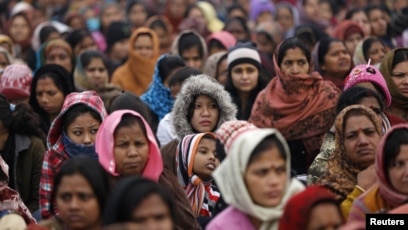AI Deepfakes and 'Nudify' Apps Drive Indian Women Offline
AI deepfakes and 'nudify' apps are driving Indian women offline due to fear of harassment and privacy violations, widening the digital gender gap.

The Chilling Effect: Fear of AI Deepfakes and ‘Nudify’ Apps Keeps Indian Women Offline
India’s digital revolution has brought hundreds of millions online, yet a growing number of women remain excluded—not by lack of access, but by fear. The rise of AI-powered “nudify” apps and deepfake pornography is creating a chilling effect, discouraging women from engaging with the internet and social media, according to recent reports and advocacy groups.
The Digital Gender Gap in India
India now boasts over 918 million internet subscribers, with 70% penetration nationwide as of 2025. However, the digital divide remains stark: 47% of Indians are still offline, and women are 33% less likely than men to use mobile internet, according to GSMA. In rural areas, the gap is even wider, with only 41.7% of rural women online compared to 110% urban penetration (where multiple devices per person inflate the figure).
This digital gender gap is not just about affordability or infrastructure. Increasingly, it is driven by fear of online harassment, privacy violations, and the misuse of AI technologies.
The Rise of ‘Nudify’ Apps and Deepfake Pornography
“Nudify” apps—tools that use artificial intelligence to generate fake nude images from clothed photos—have surged in popularity on global app stores and social media platforms. These apps, often disguised as “AI art generators,” allow users to upload any photo and instantly create a sexually explicit deepfake. In India, such apps have been used to target women, including celebrities, politicians, and ordinary citizens, often without their consent.
- In 2024, a viral deepfake video of Bollywood actress Rashmika Mandanna circulated widely, sparking national outrage and calls for stricter regulation.
- In 2025, reports emerged of women in colleges and workplaces being targeted by classmates and colleagues using these apps, leading to psychological distress, social stigma, and even threats of blackmail.
The Psychological and Social Impact
The consequences are profound. Many women report self-censorship, reduced online activity, and even complete withdrawal from social media due to fear of being targeted. A 2025 survey by the Internet Democracy Project found that over 60% of Indian women surveyed had altered their online behavior—such as avoiding posting photos or limiting social media use—because of concerns about deepfakes and online harassment.
- Vernacular content platforms, where many Indian women are active, have seen a noticeable drop in female participation in recent months.
- Online education and job opportunities are also affected, as women avoid video calls, online forums, and digital networking.
Legal and Regulatory Challenges
India currently lacks specific laws targeting deepfake pornography and AI-generated non-consensual content. While the Information Technology Act and the Indian Penal Code cover some forms of cyber harassment, they do not explicitly address AI-generated deepfakes. The government has proposed amendments to the IT Rules, but critics argue that enforcement remains weak and awareness low.
- In 2025, the Ministry of Electronics and Information Technology (MeitY) launched a public consultation on AI regulation, but no concrete legislation has been passed.
- Advocacy groups like the Internet Freedom Foundation and the Centre for Internet and Society are pushing for stronger laws, including mandatory watermarking of AI-generated content and stricter penalties for misuse.
Global Context and Industry Response
India is not alone in facing this crisis. Globally, 70.7% of women are online, compared to 75.7% of men, and the gender gap is widening in regions with high rates of online harassment. Tech companies have begun to respond: Meta, Google, and TikTok have introduced AI detection tools and reporting mechanisms, but enforcement remains inconsistent.
- In 2025, the World Economic Forum called for a global framework to combat AI-generated sexual abuse, urging governments and tech companies to act swiftly.
The Way Forward
Experts stress that addressing the chilling effect requires a multi-pronged approach:
- Stronger laws and enforcement against deepfake pornography and non-consensual AI content.
- Public awareness campaigns to educate women about digital safety and their rights.
- Improved reporting mechanisms and faster takedown of harmful content.
- Greater representation of women in tech and policy-making to ensure their concerns are heard.
As India moves toward its goal of 1 billion internet users by 2030, ensuring that women can participate safely and confidently online will be a critical test of the country’s digital future.
Relevant Images (for editorial use):
- Screenshot of a “nudify” app interface (example: AI-generated fake nude image from a clothed photo)
- Deepfake video example (blurred for privacy, showing how AI alters faces)
- Protest or awareness campaign photo: Indian women holding signs about online safety and digital rights
- Graph: Digital gender gap in India (urban vs. rural, male vs. female)
- Logo: Internet Freedom Foundation, Centre for Internet and Society
Conclusion
The fear of AI deepfakes and “nudify” apps is not just a technological issue—it is a social and human rights crisis that threatens to exclude millions of women from the digital world. Without urgent action, India’s digital revolution risks leaving half its population behind.



